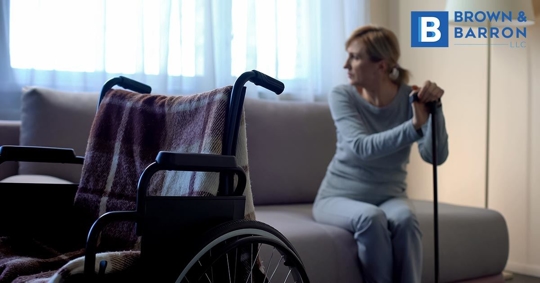The healthcare system in the United States has been striving to improve the equity and quality of health outcomes for minorities, but one group that seems to have been left behind are people with disabilities.
People with disabilities are more likely to report poor health and more chronic health conditions compared to the nondisabled, according to the Centers for Disease Control and Prevention (CDC). Like certain racial and ethnic minorities, the disabled experience worse health care and more negative health outcomes due to social disadvantages, social injustice, and systemic failures. Medical malpractice is never acceptable, and the loved ones of the disabled need to fight and advocate for equality in their healthcare, and when necessary, seek legal justice for substandard care.
Being Disabled Does Not Mean Poor Health
As defined by the American Disabilities Act (ADA), a disability is “a physical or mental impairment that substantially limits one or more major life activity.” Having a disability does not mean that a disabled person is in poor health. In a fair system, the disabled would have the have the same health outcomes as their nondisabled counterparts. Recent studies have shown that is not the case.
According to a study published in HealthAffairs:
- Disabled adults were more likely to experience cardiac disease, diabetes, higher weight, and asthma.
- Women with disabilities have higher mortality rates due to breast cancer mortality than women without disabilities, which coincides with lower rates of breast and cervical cancer screening compared with nondisabled women.
- The rates of COVID fatalities were much higher among populations with intellectual and developmental disabilities compared to the nondisabled population (especially those in nursing homes).
Health Inequality Is Caused by Poor Access to Healthcare
According to the CDC, citing 2019 data, the disabled have less access to healthcare compared to people without disabilities. As the HeathAffairs study observed, the disabled in the United States “still face barriers to health care, lower quality of care, and disparate health outcomes, in addition to inequitable access to transportation, education, housing, employment, and other social determinants of health. Existing health, economic, and social policies further exacerbate these disparities.”
A Growing Problem
According to the 2020 Annual Disability Statistics Compendium, there are 41,156,238 people in the United States living with a disability, which is more than 18% of the population. In Maryland, there are 669,208 citizens living with disability, representing 11.3% percent of the state. The CDC predicts that 26% of the population (more than 1 in 4 Americans) will have some form of disability. Experts call for expansion of access to healthcare coverage, including buy-ins to Medicaid and expanding home and community-based services to improve the equity and quality of healthcare for the disabled.
Justice for the Disabled Who Are Victims of Medical Malpractice
If you or a loved one suspects medical malpractice, including neglect related to a disability, you have legal options. It is recommended that you call a legal professional with demonstrated expertise in medical malpractice in your state. For medical malpractice situations in Maryland and Washington, D.C., contact Brown & Barron at 410-346-0206 or online for a free, no-obligation review of your family’s situation.


